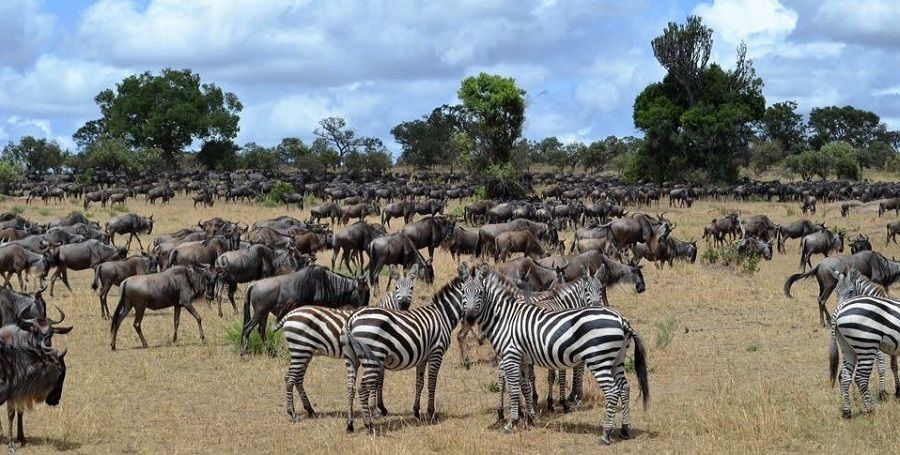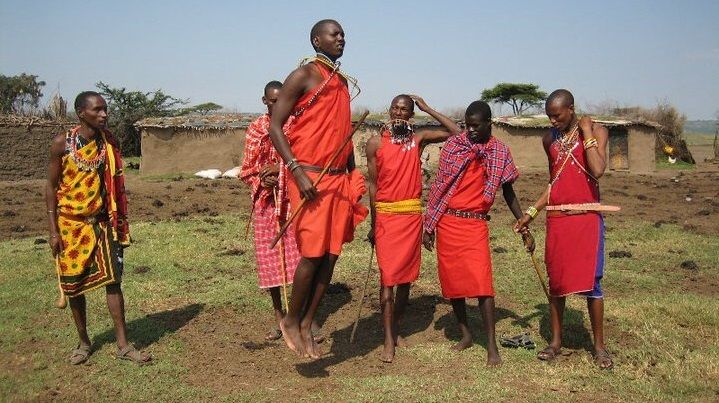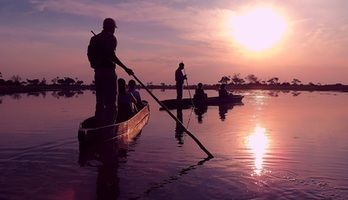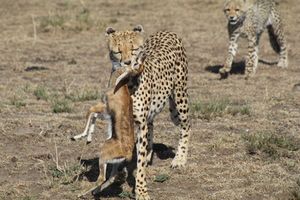
A new year is here and I’m hoping Africa is on your bucket list. It can be a little overwhelming trying to work out where to go, when to go, what to see and where to stay!
Let me break it down into bite-size pieces for you, by each month and destination, along with a recommended itinerary.
January & February
Visit Cape Town now when the weather is good and there are fewer tourists around. Rent a car to tour the Garden Road, visit the stunning Winelands, drive inland along Route 62, the longest wine route in Southern Africa, and make stops at farm stands and small villages along the way. Visit Oudsthoorn, known for the Cango Caves, ostrich farms, and the always adorable and mischievous meerkats, before driving back towards the coast. Drive along the Garden Route towards Port Elizabeth to visit gorgeous lodges that provide excellent wildlife viewing. Its lack of malaria makes it a perfect choice for families.
Despite being a normally pricey safari location, Botswana offers excellent value from November to March. It's the "green season," which means that everything is lush and green after the rains, the animals are still there, there are fewer people around, and lodges have great prices. The Boteti River (south of the Okavango Delta) to the Makgadikgaki & Nxai Pans in quest of green pastures is where you may witness the greatest number of Burchell's zebra, who are being carefully tracked by predators.
March
March is an excellent time to see wildlife in Kenya because the country is dry and the animals are gathered close to the water, making it simple to detect them. Less people are there, and safari lodges are reasonably priced.
Tanzania also provides fantastic opportunities for watching wildlife in February and March. Predators will closely follow the wildebeest and zebras as they give birth in the Southern Plains of the Serengeti and Ndutu region. The cats in this area are well-known, particularly cheetah. Thunderstorms will move in over the Serengeti Plains in the late afternoon, making for the ideal photo opportunity. Spend a few days on Zanzibar, the Spice Island, to cap off your safari. Once more, excellent value for money and less tourists make it feel like you have the place to yourself.
April
Autumn has arrived in Southern Africa, making it an excellent time to visit the Greater Kruger area and exclusive game reserves like the Sabi Sands. Game-watching becomes simpler because the vegetation is not as dense as it is in the summer.
May
For Namibia, this is the shoulder season. The nights are not too cold either, with many lodges offering star beds, a necessity while in Africa. The days are warm and dry, providing wonderful opportunities to see wildlife near the waterholes. Namibia is ideal for a self-drive vacation or a fly-in safari combined with a self-drive experience. With a variety of lodging options available to fit every budget.
June
In June, when the shoulder season is nearing a close, Zambia is worth visiting. Enter before the crowds show up. The walking safaris are available in Zambia, one of Africa's best-kept secrets. Try a walking safari if you want to get a truly unique wildlife encounter. The South Luangwa tour guides are incredibly passionate and knowledgeable about their surroundings. It doesn't matter if it's a morning or afternoon walking safari or, for the more daring, a 4-day walking safari between two bush camps! There is lots of delectable cuisines available and the lodging is rustic yet pleasant.
After your walking safari, continue your trip in Lower Zambezi. The camps, which are situated directly on the Lower Zambezi River's banks, provide game viewing, boat cruises, canoeing, fishing and walking safaris.
Uganda and Rwanda. It is worthwhile to visit Rwanda or Uganda to see the gorillas during this period due to the pleasant temperatures and low rainfall. Booking far in advance is advised because it is considered peak season and there are a limited number of permits.
July, August & September
Now is prime time for safaris in both Southern Africa and East Africa. Winter has arrived, and the conditions are ideal for observing game: the bush is dry, the days are pleasant, and the evenings are cool. The lodges/camps of your choice may sell out during the busy season, so make your reservations as soon as possible. Since national parks will be crowded, consider lodging in a private game reserve or concession, which will provide fewer cars for bush walks, nocturnal game drives, and sightings. Millions of wildebeest and zebras cross the river from the northern Serengeti into the Masai Mara during the wildebeest migration, which typically begins in the middle of July. Spend time touring both East Africa and Southern Africa if time and money permit, as the airline network effectively connects the two regions.

October, November & December
With the return of summer, temperatures are rising, waterholes are drying up, and animals are looking for cover and water wherever they can. If you enjoy the heat, this time of year will be ideal for you; some campgrounds and lodges do provide fantastic value. Consider combining a safari with a beach vacation in a place like Seychelles or Mauritius.
If you need assistance planning your trip to Africa, get in touch, I specialise in offering tailor-made African Safaris and finding the right safari experience just for you!






